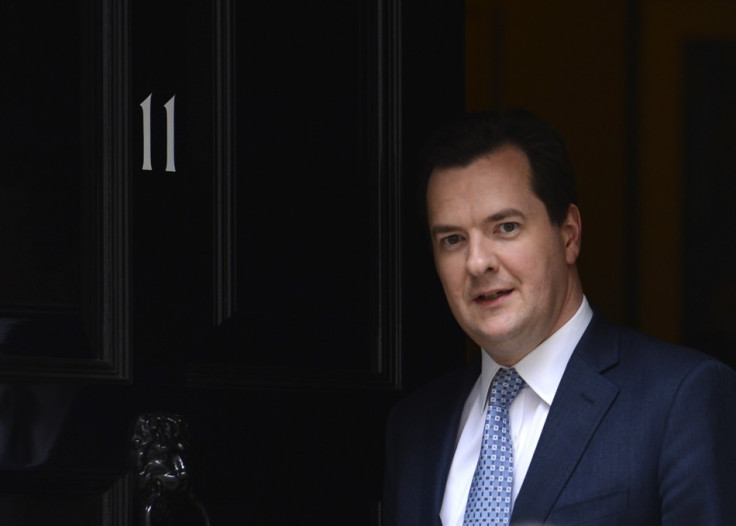IMF Warns George Osborne UK Needs Capital Investment Now

The International Monetary Fund warned Chancellor George Osborne that he must pump planned capital investment into the economy earlier, despite a raft of its directors welcoming the country's progress in implementing strict austerity measures.
The IMF board backed the scope and depth of Osborne's public spending cuts, an endorsement that bolsters the often-beleaguered chancellor's position.
Chief Secretary to the Treasury Danny Alexander has already laid out the Government's pledge to inject £300bn of capital investment into Britain's creaking infrastructure over the coming decade, but much of this must be done sooner, according to the IMF assessment.
"Directors commended the authorities' commitment to medium-term fiscal consolidation and welcomed progress in reducing fiscal risks and ensuring the sustainability of public debt," said a statement from the IMF executive board after the conclusion of its annual consultation with the UK government.
"Most directors underscored the importance of keeping fiscal consolidation on track to preserve credibility, not least in light of the persistent weakness of the fiscal position.
"However, a number of other directors noted that slow growth could undermine the credibility of the adjustment effort and called for additional flexibility within the context of the medium-term fiscal framework, including by bringing forward capital investment."
UK Infrastructure Investment
The Treasury is planning to pump billions into projects such as the High Speed 2 rail network, building a new wave of affordable homes, and money for the Green Investment Bank to put into a burgeoning renewables sector.
However, much of this - in the form of direct capital investment by the government, or from guarantees to secure private finance - will not materialise for years. Very little of this is new capital spending and will be drawn from cuts elsewhere.
In 2015 alone, the government is cutting its investment by 1.7% in real terms.
Persistent low growth and missed forecasts from the economy raised many question marks over the chancellor's austerity plan, which had largely been based on GDP estimates from before the outbreak of the catastrophic eurozone crisis.
As a result of worse than forecast output, the UK's public debt pile has soared and will rise every year to a peak of 85.6% of GDP in 2016/17, according to the Office for Budget Responsibility (OBR), before falling - two years later than Osborne's original target.
The low growth horizon has damaged the case for austerity, with many saying it means Osborne should pump more money into the economy, slow the pace of his cuts, and delay austerity until the economy has picked up again.
Osborne maintains there is an urgent need to erase the country's structural deficit in public finances and that he cannot row back on his commitment to austerity. If he does, he risks losing the UK's credibility in the markets and sending its borrowing costs soaring.
Because of the worse-than-expected falls in GDP, he has extended his austerity programme until at least 2018. The latest round of cuts, due to fall in 2015, will see £11.5bn slashed from Whitehall department budgets.
Recent economic indicators suggest the economy is taking its first tentative steps towards recovery. The IMF upgraded its UK growth forecast for the first time in more than a year. It predicts 0.9% growth in 2013, up from the previous guess of 0.6%.
The National Institute for Economic and Social Research (NIESR) forecasts 0.6% growth in the second quarter, an uplift from the previous quarter's 0.3%, as output in the private service sector gathers pace. Service firms account for three quarters of UK GDP.
© Copyright IBTimes 2024. All rights reserved.






